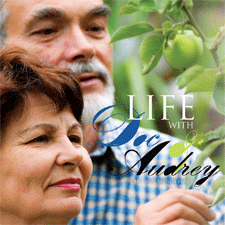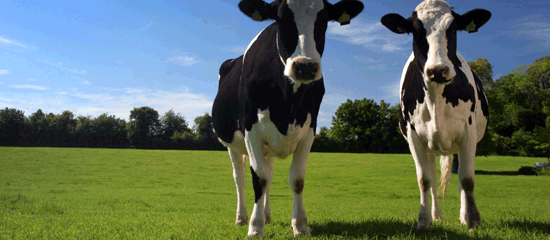 |
life with doc and audrey
by Bill and Brenda Evans
Find out more about the Free Will Baptist Foundation at www.fwbgifts.org. |
When Dr. Marvin McCoy Smith says, “I have a cleaving,” he refers to a kind of goodness that binds people together and opens hands and hearts—something he calls “the real thing.” Doc’s cleaving, for example, means hiring and mentoring a brilliant young black man whom no one else would give a chance.
“He’s the only genius I’ve ever known,” Doc says. “All he had to do was read a book or watch me once, and he could do anything.” Don Bennett worked with Doc for 20 years as an assistant animal surgeon, colleague, and friend. To Doc, that’s the real thing.
Marvin Smith is a weathered but rugged 88-year-old retired veterinarian with the grace of a Southern gentleman and the heart of his father. “The thing that has propelled me all my life has been the goodness of my father, and that goodness was shown by his giving. I caught it from him.
“My father’s family owned slaves in southern Alabama at a place called Five Points, and after the Civil War, three families stayed on with them. Later when my father moved up to Sand Mountain near Cullman, Alabama, he and Mother settled on 982 acres. It hit him hard about the sufferings of those three black families, and so he went back and invited them to live on his place. Two families accepted.
“By then he had a sawmill and had built 10 or 12 new tenant houses. The first year, the KKK burned a cross on one family’s yard. But my father told them he was going to try to keep them safe. The next year the KKK burned one of their houses. In fear, the two families fled back to Five Points. He mourned for them.

“Like my father, I’ve had a cleaving for people who have a disadvantage or suffer loss. I understand a little how it is to have a hardship. As a child and even into high school, I could not read. Finally an optometrist diagnosed my problem as severe astigmatism that kept my eyes from focusing right so that letters never lined up logically. I could read ‘the dog chases the cat up a tree,’ but not longer words.
“Three old maid aunts who were teachers lived with us and helped me. When I finished high school, I went on to Auburn University, was in the honor society and ROTC, and got a degree in agriculture. But when WWII started, I was rejected for advanced ROTC or the military because on the firing range I missed the target by 25 feet. So I went on to veterinarian school instead. After graduation in 1945, I moved to Springfield, Tennessee, and began my practice. I finally retired and sold it in 1981.”
Veteran Veternarian
What kind of person makes a good veterinarian? Mrs. Audrey, Doc’s wife, says, “You have to be willing to work hard day and night. Calves are rarely born in daylight hours.” That same kind of man makes a good husband it seems. Doc met and doggedly pursued Mrs. Audrey’s hand and heart because he had bovine wart vaccine and she had Angus cattle who needed injections. Now they joke about a bottle of wart vaccine bringing them to the marriage altar.
Doc says a veterinarian also needs to be generous and good. “If I was able with an intravenous injection to perform a miracle, I felt good. Sometimes a cow lying down ready to die with milk fever would stand up in minutes and get well in a day or two. But sometimes, it was too late. I remember one man had three dead cows when I got there. He needed those cows bad, but they were gone. Before I left, I wrote him a check for $150 to help him with his loss.”
Giving Back
To Doc, goodness is demonstrated by giving, and vileness is manifested by greed. One of Doc’s relatives made a legitimate fortune during WWII but buried it in zinc-lidded fruit jars under his house to avoid taxes. Moisture eventually damaged the paper money, and the local bank, assuming it was illicit money, would not redeem it. Doc knows it does not pay to be greedy.
“Your goodness comes out through your money, or you go bad through money,” Doc states. “Christ went about doing good and that’s what I want to do. And in the Bible He talked more about money than almost anything else.” Helping the down-and-out, whether people or animals, is his favorite method of doing good.
“I was out in the country on calls and went by to see a young couple who were Audrey’s relatives. They had bought an old house on 26 acres and were refinishing it. She was pregnant with their first child, and he had fallen seriously ill and couldn’t work. They were out of money and ready to close off the part of the house they couldn’t finish.
“I told them to order the lumber they needed and send me the bill. They were shocked and reluctant, but the carpenter kept working and I kept paying the bill. I told them it wasn’t a loan; they didn’t owe me anything. That young father has never forgotten that and still asks, ‘What do you need, Doc?’”
Often, the Smiths give kindness, not money. Mitzi, a stray dog that kept hanging around their yard, is an example. “One day I threw a small rock trying to run her off. It hit her on the paw. When I hurried to see about her, she licked her paw and then me. I said to her, ‘Come on, let’s go home.’ She’s taught me that a dog truly is man’s best friend. One day she broke off three canine teeth bending the latch on her dogtrot to alert us to a bad storm. She seemed to know we were napping and in danger.”
Today Doc and Audrey do not worry about money or about the future. “I’ve learned that God always rolls His money over. I didn’t make all my money treating animals. During the Carter administration when interest was 12-20 percent, a friend recommended I invest in industrial development bonds that were tax-free. During those days, my money doubled and doubled, and I had other investments as well. Now I have given it all away. That’s what my lawyer likes best of all—I’ve given it away, but am still taken care of. That is what gift annuities do. ”
“Most of us start with just a little money, but it will go up and up if we do what is right,” Doc says. Doc has already provided an inheritance for his daughter and has also benefited many Christian and community charities, yet he and Mrs. Audrey live comfortably because of a combination of gift annuities and revocable trusts arranged through Free Will Baptist Foundation.
Doc’s advice is never bury your money. “Find a way to give it away and also meet your needs. I believe it is true that the love of money is the root of evil. I’ve seen it demonstrated. Loving money is a bad trick you play on yourself. I had parents who showed me how to do the real thing—to give.”
Marvin McCoy Smith goes by many names—The Real McCoy, Doctor Mac, just plain Doc, author, or humanitarian, to name a few. But what Doc and Mrs. Audrey really want to be known for is that they are good and generous givers. To them, that is the one and only real thing.
About the Writers: Bill Evans, former director of the Free Will Baptist Foundation, lives in Catlettsburg, KY, with his wife Brenda, a retired English teacher. They are grandparents of seven. To learn more planned-giving options offered by the Free Will Baptist Foundation, visit www.FWBgifts.org. |

